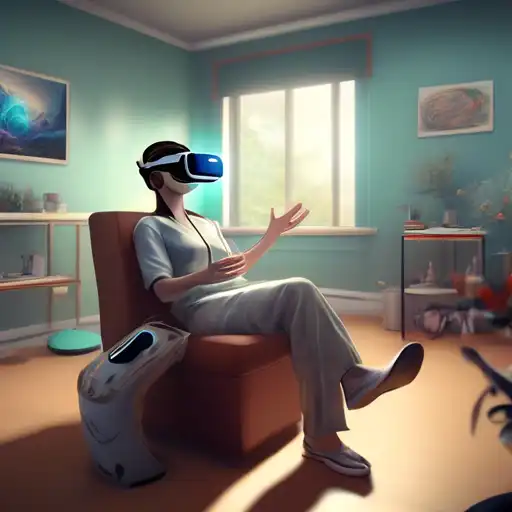The Transformative Role of Virtual Reality in Modern Therapy Practices
Virtual Reality (VR) technology has transcended its initial entertainment-centric applications to become a groundbreaking tool in the field of therapy. By creating immersive, controlled environments, VR offers unique opportunities for treating a variety of psychological and physical conditions. This article explores the innovative ways VR is being utilized in therapy, highlighting its benefits and potential for future applications.
Understanding VR Therapy
VR therapy involves the use of virtual reality technology to simulate environments where patients can confront and work through their issues under the guidance of a therapist. This method has proven particularly effective in treating phobias, PTSD, anxiety disorders, and even physical rehabilitation.
Key Applications of VR in Therapy
- Exposure Therapy: VR allows patients to face their fears in a safe, controlled setting, making it an ideal tool for exposure therapy.
- Pain Management: Studies have shown that VR can significantly reduce pain perception during medical procedures or chronic pain management.
- Social Skills Training: Individuals with autism or social anxiety can benefit from VR scenarios designed to improve communication and social interaction skills.
- Physical Rehabilitation: VR games and exercises can motivate patients during physical therapy, enhancing recovery outcomes.
Benefits of VR Therapy
The advantages of using VR in therapy are manifold. It provides a safe environment for patients to explore and confront their issues without real-world risks. Additionally, VR therapy can be more engaging and less intimidating than traditional methods, leading to higher patient compliance and better outcomes.
Challenges and Considerations
Despite its potential, VR therapy faces challenges such as high costs, the need for specialized equipment, and limited accessibility. However, as technology advances and becomes more affordable, these barriers are expected to diminish.
Future Directions
The future of VR in therapy looks promising, with ongoing research exploring its use in treating a wider range of conditions. Innovations in VR technology and software are expected to enhance its effectiveness and accessibility, making it a staple in therapeutic practices.
For more insights into how technology is revolutionizing healthcare, explore our articles on Technology in Healthcare and Innovative Therapies.
Virtual Reality is redefining the boundaries of therapy, offering new hope and possibilities for patients worldwide. As we continue to uncover its potential, VR stands as a testament to the power of technology in transforming lives.
